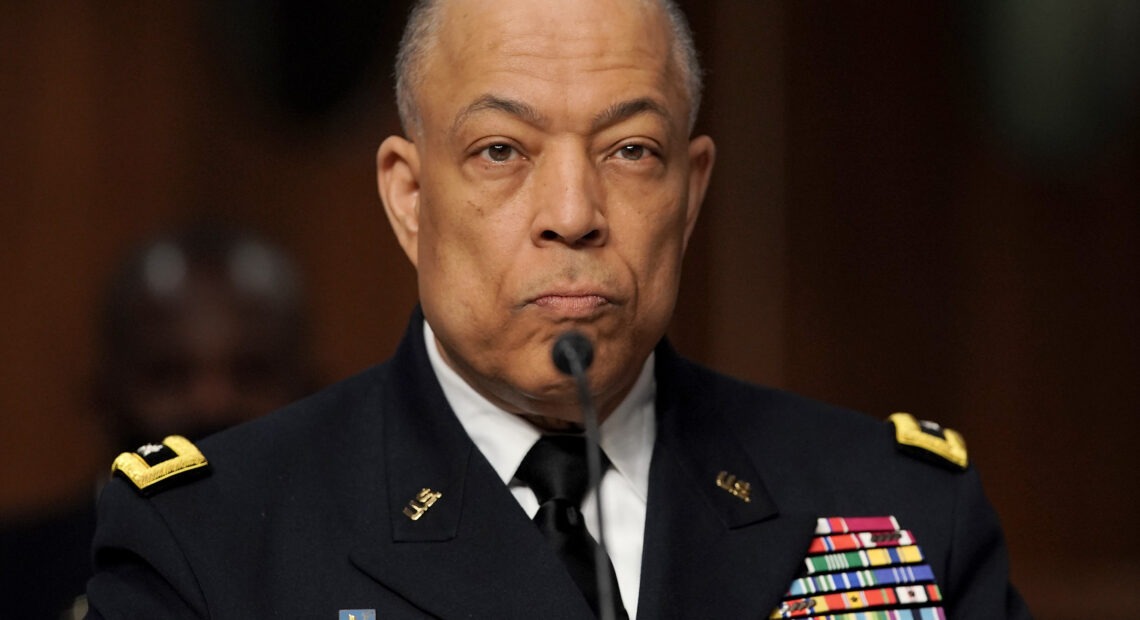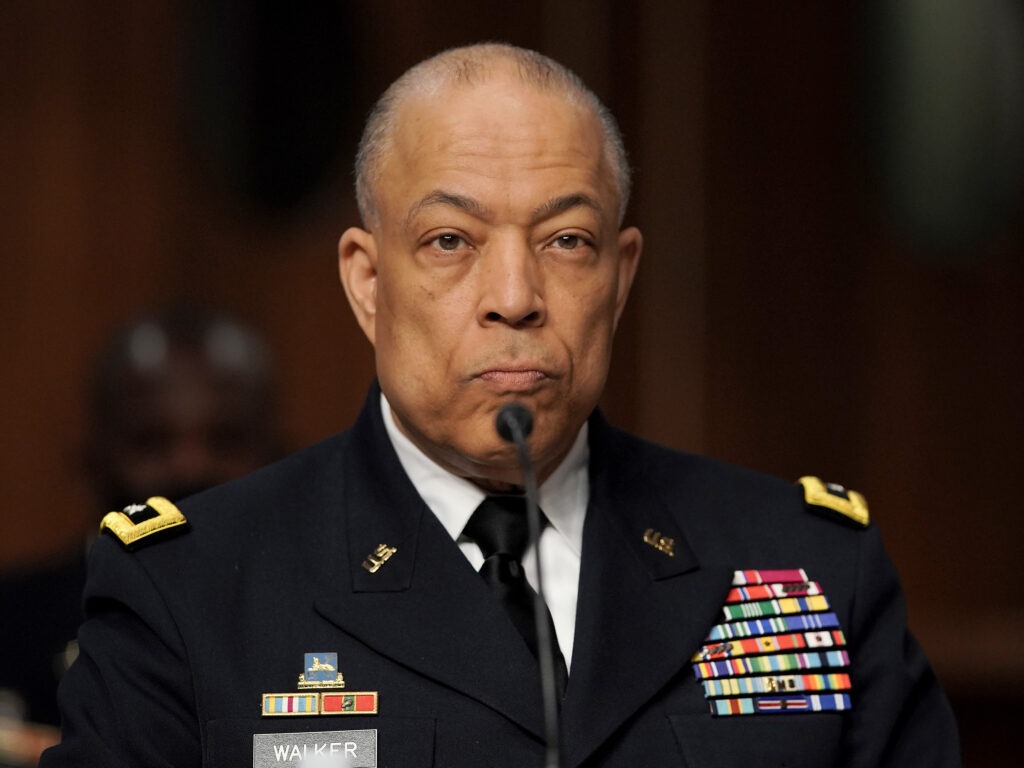
DOD Took Hours To Approve National Guard Request During Capitol Riot, Commander Says
BY ALANA WISE
Former President Donald Trump’s Defense Department did not approve D.C.’s National Guard to intervene in the deadly Jan. 6 Capitol insurrection for several hours after the initial request was made, the commanding general of the outfit told senators on Wednesday.
The testimony comes as Congress holds a series of hearings about security preparations and response around the violence at the Capitol earlier this year.
“At 1:49 p.m. I received a frantic call from then-Chief of U.S. Capitol Police, Steven Sund, where he informed me that the security perimeter at the Capitol had been breached by hostile rioters,” Maj. Gen. William Walker told the Senate Homeland and Rules committees in a joint hearing.

Army Maj. Gen. William Walker, Commanding General of the District of Columbia National Guard is seen during a joint hearing to discuss the January 6th attack on the U.S. Capitol. CREDIT: Pool/Getty Images
“Chief Sund, his voice cracking with emotion, indicated that there was a dire emergency on Capitol Hill and requested the immediate assistance of as many Guardsmen as I could muster.”
Walker said he “immediately” alerted Army senior leadership of the request. He did not receive the required approval from the acting secretary of defense until 5:08 p.m., he said — “3 hours and 19 minutes later.”
“We already had Guardsmen on buses ready to move to the Capitol. Consequently, at 5:20 p.m. (in under 20 minutes) the District of Columbia National Guard arrived at the Capitol. We helped to re-establish the security perimeter at the east side of the Capitol to facilitate the resumption of the Joint Session of Congress,” he said.
Walker said he had taken it upon himself to move the guardsmen closer to the Capitol in anticipation of the approval to mobilize. He said 155 guardsmen were ready hours earlier and he said their assistance “could have made a difference” in pushing back the crowd.
The riot — undertaken by violent pro-Trump extremists who falsely believed the election had been stolen by President Biden — shook the foundation of America’s seat of democracy and resulted in five deaths. Two law enforcement officers committed suicide in the days following as well.
The incident highlighted a number of apparent failures within law enforcements’ operations and intelligence gathering and sharing, leading to bipartisan dismay at how the large mob had been allowed to breach the Capitol complex.
The attack on the Capitol had been planned for weeks, including on publicly accessible Internet forums. Former Capitol security officials testified last week that they did not receive the intelligence they needed to adequately prepare. On Tuesday, FBI Director Christopher Wray said he believed the bureau followed the proper protocols in disseminating the relevant intelligence.
Trump himself tweeted weeks before the event: “Big protest in DC on January 6th. Be there, will be wild!” and was impeached by the House of Representatives for inciting the riot, though the Senate later acquitted him of the charge.















